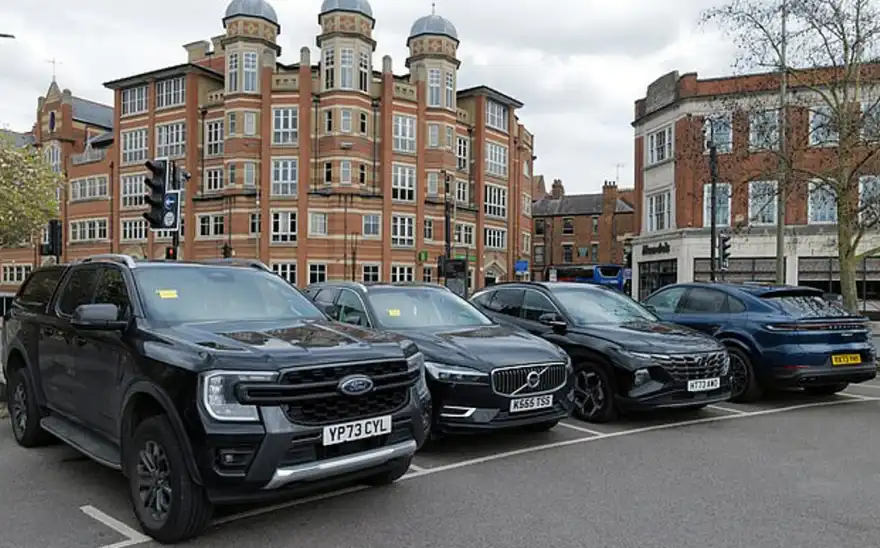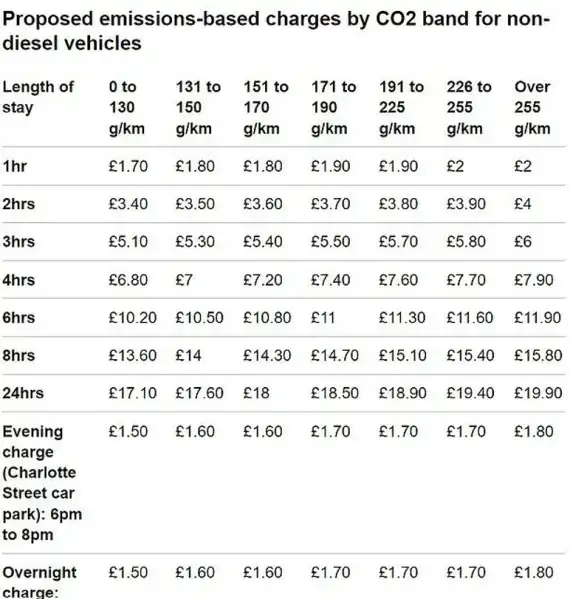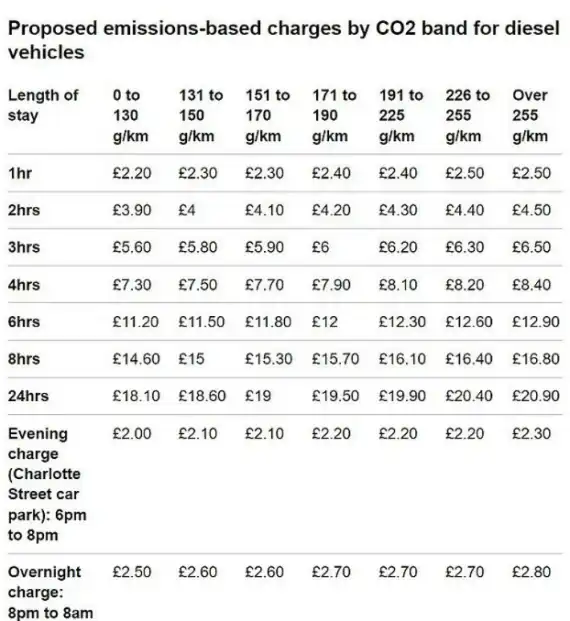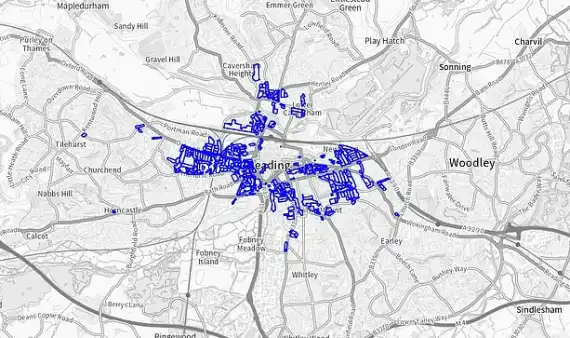
Reading Borough Council is the latest authority exploring emissions-based parking charges, which could see vehicles with higher carbon dioxide emissions paying significantly more. Large SUVs, among the most polluting vehicles, could face costs more than double the current rates under the proposal.
The proposed changes would apply to parking permits and on-street parking but exclude council-run car parks. If approved, the new charges would begin in April, following a council meeting on January 20.
This initiative mirrors similar schemes already in place in cities like Bath and parts of London. Cardiff and Bristol recently conducted consultations to gauge public opinion on introducing size- and emissions-based parking charges.

Reading Council plans to implement a sliding scale for parking fees based on vehicle emissions. Petrol cars would pay at least 20% more than current rates, while diesel vehicles would face a 25% increase. Charges would be determined by emissions bands, starting at 151–170g/km and going up to over 255g/km.
For example:
A Ford Focus (1.0 EcoBoost, 151-170g/km) would see its hourly parking fee rise from £3 to £.60.
A Mercedes-Benz G-Class (G 63 AMG, over 225g/km) would pay £6 per hour, double the current rate.
Electric vehicles are exempt from this proposal but could be included in future reviews. The council is also considering combining emissions with weight or size-based tariffs, similar to Paris’ "Land Rover tax."

To support the new scheme, Reading plans to upgrade outdated pay-and-display machines. The number of machines would be reduced from 168 to 75, with modernized systems accepting card payments and eliminating paper tickets. Drivers would input their vehicle registration, allowing the council to calculate charges based on emissions data from the DVLA.
Bath introduced emissions-based charges in September 2023, increasing parking fees for diesel and high-emission petrol vehicles in city center car parks. In London, boroughs like Greenwich, Lambeth, and Hammersmith & Fulham base resident permit costs on vehicle emissions.
Cardiff’s proposals focus on vehicle size, aiming to discourage SUV ownership, while Bristol combines weight, emissions, and size in its pricing model. Oxford has also proposed charging higher fees for larger, heavier cars.
Reading Council’s report highlights the goal of encouraging people to switch from high-polluting vehicles to more sustainable transport options. This aligns with efforts to improve air quality, benefit public health, and support net-zero targets.

Councillor John Ennis, responsible for climate strategy and transport, said: “We’ve seen similar schemes succeed elsewhere, and we believe this will help reduce high-emission vehicles while improving air quality and health outcomes.”
Green Party Councillor Emily Kerr, who advocated for size- and weight-based charges in Oxford, added: “Bigger cars take up more space, and as vehicles have grown, car parks struggle to accommodate them properly.”
Reading Council will hold a public consultation before implementing any changes. Other councils, including Oxford, Bristol, and Bath, have taken similar steps to gather public input.
Cardiff’s consultation, which ended on December 1, faced criticism from some quarters. Conservative Councillor Calum Davies labeled the proposals an “anti-car agenda,” while IAM RoadSmart policy director Nicholas Lyes cautioned against measures that could be seen as a “cash grab.”
To have your say on Reading’s parking proposals, watch for details on the upcoming consultation.




